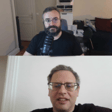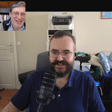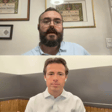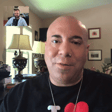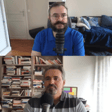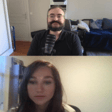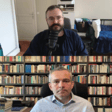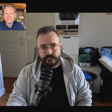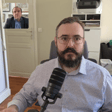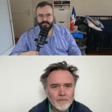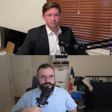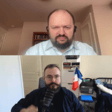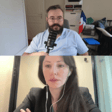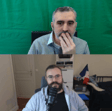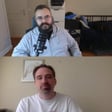Introduction and Episode Overview
00:00:00
Pascal-Emmanuel Gobry
Hello, everyone, and welcome to a new edition of the Sphere podcast, which is shot from my terrorist hideout in Niger, which is very convenient because Niger is where France gets most of its uranium from.
00:00:14
Pascal-Emmanuel Gobry
And we're here to talk about nuclear things and and French nuclear things, U.S. s nuclear things, nuclear energy, not nuclear war.
Guest Introduction: Mark Nelson
00:00:23
Pascal-Emmanuel Gobry
ah First, an apology. We didn't have an episode of the podcast last week.
00:00:29
Pascal-Emmanuel Gobry
ah We had a guest who had a scheduling issue and we usually tried to have we usually have try to have a backup episode, but we couldn't get one. So apologies for that.
00:00:41
Pascal-Emmanuel Gobry
But now we have ah our guest today, Mark Nelson. Why don't you introduce yourself?
00:00:49
Mark Nelson
Sure. Thanks, Pascal. um I'm Mark. I'm from Oklahoma. I live in Chicago in the United States. i studied nuclear engineering at Cambridge University, and I run my own small consulting firm working on business and strategy issues in the energy sector.
00:01:06
Mark Nelson
Most of my clients are in the nuclear sector.
00:01:09
Pascal-Emmanuel Gobry
Okay, very
France's Nuclear Energy History
00:01:10
Pascal-Emmanuel Gobry
good. And so we're mostly here to talk about France because, well, let me put it this way. So a huge plank of president President Trump's agenda for this term is energy. It's one of the big things that he talks about. And a lot of the people around him are talking about nuclear. And when you're talking about nuclear and energy, you're talking about France because France is the best country in the world.
00:01:39
Pascal-Emmanuel Gobry
ah and it's the best at many, many things, but in particular, ah we got energy right and we got it right in a big way before other nations and we sort of kept with that.
00:01:54
Pascal-Emmanuel Gobry
Macron tried to destroy it sort of had to stop at the brink when when people realized, well, Ukraine actually, Ukraine saved French nuclear energy.
00:02:05
Pascal-Emmanuel Gobry
ah We can talk about that. ah But I understand that you're very interested in the entire history of the French nuclear program, which I sort of know at a high level as just like somebody who lives here and sort of cares about this stuff. But I certainly don't know it in any deep detail.
00:02:22
Pascal-Emmanuel Gobry
So why don't you tell us about the story? ah Because it's a fascinating one.
00:02:27
Mark Nelson
Will do. But before I do that, I have to correct you a little bit. France does not get most of its uranium from Niger, especially now. um But they do have a number of they have a number of lovely ventures around the world from in Canada and Kazakhstan and other places.
00:02:35
Pascal-Emmanuel Gobry
Not anymore. That's true. Yeah.
00:02:42
Mark Nelson
So um France is fully diversified and not only dependent on a few mines in sub-Saharan Africa or Saharan Africa, I suppose.
00:02:54
Pascal-Emmanuel Gobry
Okay, so, yeah, no, no, that's that's true. I mean, it's it's this myth that, you know, France exploits the mineral resources of Africa, blah, blah, blah, blah. blah And it's like, ah that's not that's not really true. And yes, the the sources are diversified, but they're they're there's like a couple big uranium mines in Niger, and it's true, they don't have a lot of else going on.
00:03:16
Pascal-Emmanuel Gobry
And they are slash were owned by France, but France decided to pull out. Anyway, so... When does the French nuclear energy program start?
00:03:29
Mark Nelson
Well, let me get to where the French nuclear energy program starts. But first, and this is quite important, I think, because I see a lot of anti-France slander around the world because of this Niger uranium.
Uranium Supply and Niger's Role
00:03:40
Mark Nelson
ah Niger may not have a lot going on besides like mining and minerals, but uranium is only a tiny fraction of that.
00:03:47
Mark Nelson
So the fact that it was uranium and not, say, gold, which is much more important to the economy of Niger that got the attention after the coup, it has to do with sort of...
00:03:55
Pascal-Emmanuel Gobry
That's true.
00:03:58
Mark Nelson
ah I don't know, fair or unfair, you can judge, and it's not for this podcast to get into, France's reputation in Africa and the cultural importance of nuclear energy and nuclear defense were what made it a uranium story around that coup in Niger a few years ago, rather than a much more important like story about, say, gold.
00:04:21
Pascal-Emmanuel Gobry
Interesting.
00:04:22
Mark Nelson
Which gets us back to why France did nuclear in the first place.
00:04:22
Pascal-Emmanuel Gobry
Interesting.
France's Strategic Nuclear Investments
00:04:26
Mark Nelson
I promise there was a reason I brought that up.
00:04:26
Pascal-Emmanuel Gobry
Yes.
00:04:28
Mark Nelson
France did nuclear because a very small amount of uranium with not very much market value powers most of French electricity and it it does it cleaner and cheaper than Germany.
00:04:43
Pascal-Emmanuel Gobry
Okay.
00:04:43
Mark Nelson
That's the whole point. You don't need much uranium in France. You just need a little sprinkle each year
00:04:47
Pascal-Emmanuel Gobry
Okay.
00:04:50
Mark Nelson
And then you can power all of French society. And even then, France is using so much less nuclear than it should and could.
00:05:00
Pascal-Emmanuel Gobry
So hang on. So, okay, so let's start there. um So are you saying that French nuclear reactors use less uranium per output than others?
00:05:14
Mark Nelson
Well, partly. i don't know if I can absolutely say that that's an unambiguous success because it's a little bit more expensive the way the French do it. But the French reactors indeed use, ah you know, I think some of your reactors are running on recycled uranium and recycled plutonium from spent fuel.
00:05:32
Pascal-Emmanuel Gobry
Yes, that's true.
00:05:33
Mark Nelson
So you have a twice through fuel cycle, which means that you bring in uranium, you enrich it, you put it in some of your reactors, you take the waste out.
00:05:38
Pascal-Emmanuel Gobry
That's true.
00:05:44
Mark Nelson
You process it. You recycle back the parts you can use. Put that back in reactors, and then it will go to somewhere else afterwards. So France is able to go get energy on less total uranium per unit of power output than some other places.
00:06:01
Mark Nelson
um There are pluses and minuses to doing it that way. France happens to do it that way. That is the French way of doing things at the moment.
00:06:09
Pascal-Emmanuel Gobry
there's There's always a French way of doing things.
Economic and Political Drivers for Nuclear Power
00:06:12
Pascal-Emmanuel Gobry
So my understanding is basically what what really triggered this was the oil shock.
00:06:22
Pascal-Emmanuel Gobry
um The the ah oil gets extremely expensive. um There's probably some monetary stuff. ah The franc was historically a more volatile currency than than sterling or the Deutsche Mark.
00:06:39
Pascal-Emmanuel Gobry
and so when And we've all also had issues with our trade balance, which also affects the currency. And so the the the oil the oil shock hit us really hard.
00:06:52
Pascal-Emmanuel Gobry
um France had been running like a full employment economy since the end of the war until the mid-70s. um And there were all also obviously strategic risks to being dependent on foreign sources of energy.
00:07:09
Pascal-Emmanuel Gobry
ah And so there was a decision. This is one of the benefits of central planning ah to go nuclear and And that means when you have a strong state, when you have a ah competent state, when you have a state with a tradition of engineering as part of the government, where the government actively recruits the top engineers in the country to work on projects like this. It's also the time when we built the high-speed trains and all that sort of stuff.
00:07:41
Pascal-Emmanuel Gobry
ah We rolled these out. And so this was, I believe, the Promesmer in the 70s. ah where we build how many?
00:07:57
Pascal-Emmanuel Gobry
60 nuclear reactors. like That's a lot.
00:08:00
Mark Nelson
And can I can i just stop to emphasize this?
00:08:00
Pascal-Emmanuel Gobry
Those are big.
00:08:03
Mark Nelson
You had a generation of unbelievably hard dudes.
00:08:03
Pascal-Emmanuel Gobry
Yeah, no.
00:08:07
Mark Nelson
dude Dudes who'd been through about as bad as it gets in the history of France. I mean, look, things were not amazing when Jeanne d'Arc had to like kind of kick people in the pants and get the spirit up and win some battles.
00:08:20
Pascal-Emmanuel Gobry
Yes.
00:08:21
Mark Nelson
That was not an amazing time in France when France had been partially invaded. But the generation of young leaders who built the French nuclear system had been through ah much more spectacular collapse of France.
00:08:36
Pascal-Emmanuel Gobry
yeah
00:08:37
Mark Nelson
in World War II. And they'd watched their elders, many of them heroes of the First World War, essentially be forced to roll over and give up or not be forced and just want to to give up, get rolled by Germany and try to minimize damage, give up their own um their own people to the to the German concentration camp machine. It was an absolutely humiliating time.
00:09:03
Mark Nelson
And there were people who ran joined the resistance, joined the overseas armies of de Gaulle, came back, fought their way back to France, and then made France great when given the opportunity in the 60s, 70s, and 80s.
00:09:14
Pascal-Emmanuel Gobry
It's true. and
00:09:18
Mark Nelson
And that's really an important part of this nuclear story, that people who had seen France absolutely at her knees, and had gotten a chance to be on the winning side of history.
00:09:31
Mark Nelson
They made good on it at the point that the oil shock united decision-making in France in the central planning apparatus.
France's Nuclear Strategy Execution
00:09:39
Mark Nelson
And there was a crucial moment here. We're jumping straight into the heart of the story, but there's this moment where the prime minister's office calls the leader, the head ah
00:09:50
Pascal-Emmanuel Gobry
Okay, so which prime minister was this, do you remember?
00:09:53
Mark Nelson
So this would have been, well, under Mesmer, but it wasn't Mesmer himself that called the head of EDF.
00:09:54
Pascal-Emmanuel Gobry
Okay. Okay.
00:09:58
Pascal-Emmanuel Gobry
Okay.
00:09:59
Mark Nelson
So a call comes in from the prime minister's office and basically says, we need to know, it's Saturday 9 a.m., we need to know by midday how many reactors you can build per year.
00:10:13
Mark Nelson
Don't tell anyone, gather the information. We're going to be working on this, but we need to know how many you can do per year. And so a few key parts of this story, the head of EDF, Marcel Boutou, he was at his desk at 9 a.m.
00:10:27
Mark Nelson
because that's just where he was working to build France.
00:10:29
Pascal-Emmanuel Gobry
Right. Right.
00:10:32
Mark Nelson
Okay, I'm not saying that everyone has to work on Saturdays.
00:10:33
Pascal-Emmanuel Gobry
right
00:10:34
Mark Nelson
I'm just saying there's a generation of dudes who, as teenagers and young men, escaped Nazi occupation to join ah military overseas that reconquered Europe and liberated France, right?
00:10:48
Mark Nelson
And then they were elevated to positions of high responsibility. And when the call came... that you're needed, France needs you. They were ready. They were waiting. And then they executed.
00:10:59
Mark Nelson
By the way, the answer came back um too small for the for the government. and they said, no, more, more.
00:11:05
Pascal-Emmanuel Gobry
yeah
00:11:05
Mark Nelson
And so yeah the in the end, the goal was to start about six reactors per year and try to complete six reactors per year after about five or six years beyond the decision, the first decision.
00:11:19
Pascal-Emmanuel Gobry
Okay. So that, and and that that was the first decision or did they go bigger?
00:11:24
Mark Nelson
Well, so France already had a nuclear energy program.
00:11:25
Pascal-Emmanuel Gobry
bigger
00:11:28
Mark Nelson
Even more, France had already decided to go with American technology due to its superior engineering and economic characteristics at the time. In other words,
00:11:39
Pascal-Emmanuel Gobry
Right. They actually licensed a design from Westinghouse. Is that correct?
00:11:43
Mark Nelson
which in my opinion, and I know that that stuff like this really raises ah defensiveness in French folks I've talked to, Westinghouse was never able to build or or take to see its product built be built in such a superior manner as the way the French did in terms of cost and schedule.
00:12:02
Pascal-Emmanuel Gobry
Okay. interesting
00:12:05
Mark Nelson
In other words, it wasn't Westinghouse alone. It wasn't France alone. It was the combination of the right system. the The difficult politically and in terms of pride reasons, very difficult decision to license American technology rather than the homegrown French gas graphite technology.
00:12:24
Pascal-Emmanuel Gobry
okay
00:12:24
Mark Nelson
Then there was a risky decision made when the prices that they could, they were trying to get good prices on boiling water reactors from
00:12:33
Mark Nelson
the General Electric and their combines and and in Europe, they couldn't get a good enough price. So they went all in on Westinghouse right as the order came in during this oil crisis, release the
Adoption of American Nuclear Technology
00:12:47
Mark Nelson
How many can you build? Build that number. Don't say anything. We're going to announce it officially and in about five or six months. So in the popular anti-nuclear telling of this time, it was EDF out of control, forcing the government to let them build a bunch of expensive reactors.
00:13:01
Pascal-Emmanuel Gobry
and just So EDF is, at the time, the national ah utility, because back then there's one utility, which is a national monopoly and is owned by the government.
00:13:04
Mark Nelson
like Electricity de France. Yeah, which was a national...
00:13:12
Mark Nelson
and Well, it was certainly a national monopoly then.
00:13:13
Pascal-Emmanuel Gobry
So that that's the question.
00:13:15
Pascal-Emmanuel Gobry
Yes.
00:13:16
Mark Nelson
ands It's ah in a weird way a monopoly without getting monopoly benefits for the people of France. So it's like big enough to be...
00:13:23
Pascal-Emmanuel Gobry
right Right now we have a completely screwed up system that was designed by the Germans to destroy the French energy industry. But that's...
00:13:31
Mark Nelson
I'll let you you say those motivations, but um it's suboptimal. but it's being But look, at this point, i'm I think we're out of excuses for french the French because at the moment, French people have French fate in their hands.
00:13:47
Mark Nelson
and need to make French decisions and French actions to execute the next the French century.
00:13:47
Pascal-Emmanuel Gobry
Yes.
00:13:50
Pascal-Emmanuel Gobry
Yes. yeah Yes.
00:13:53
Mark Nelson
So no matter how much it it we can try to blame it on Germany, we know that Germany did not do that to France in recent decades, did not hurt French policy at the tip of a spear.
00:14:03
Mark Nelson
There had to be French people that went along with German plans and wanted what the Germans wanted for France.
00:14:08
Pascal-Emmanuel Gobry
Yes.
00:14:09
Mark Nelson
So putting that aside, I can get a little heated because of how angry it makes me.
00:14:11
Pascal-Emmanuel Gobry
Yeah.
00:14:14
Pascal-Emmanuel Gobry
Yeah. No, like well we we'll talk about the the situation today, but... um
00:14:19
Mark Nelson
At the time, six reactors, Westinghouse design, French, but French plant engineering.
00:14:21
Pascal-Emmanuel Gobry
As it, so, let's, yeah.
00:14:26
Mark Nelson
In other words, the front the inside, the the the metal piping, the metal parts, the rough layout of the plant, but it was it was French architect engineers working hard to make, to implement this in a way that worked in France in French conditions.
00:14:27
Pascal-Emmanuel Gobry
Yes.
00:14:32
Pascal-Emmanuel Gobry
Right. Right. Right.
00:14:43
Pascal-Emmanuel Gobry
Right. so So, okay. So the the best design in the market at the time was American, but it was the French who managed to build it ah theyre better than the Americans apparently, and sort of more efficiently and at a higher scale, essentially, is what you're saying.
00:14:58
Mark Nelson
So in this case, when we say better, I think probably best to just say better means they did it over and over in a cost effective manner.
00:15:05
Pascal-Emmanuel Gobry
Right.
00:15:06
Mark Nelson
And they've been operated safely and securely for 40 years.
00:15:06
Pascal-Emmanuel Gobry
Right.
00:15:11
Pascal-Emmanuel Gobry
Yes. ah More than 40 years now, 50. Depends on when you count.
00:15:15
Mark Nelson
depend Well, the problem is you to down you tore down your oldest ones um before the Ukraine invasion so you could prove to the anti-nuclear part of your elite that you were serious about destroying yourselves.
00:15:18
Pascal-Emmanuel Gobry
Yeah. Because they rolled it out.
00:15:29
Mark Nelson
But then the invasion happened, gas prices went up, and somehow ah the this drive to just destroy what's best about French industry and energy, it was dampened a little bit.
00:15:29
Pascal-Emmanuel Gobry
Yes. Yeah.
00:15:40
Pascal-Emmanuel Gobry
yeah
00:15:40
Mark Nelson
And may it never come back.
00:15:42
Pascal-Emmanuel Gobry
Yeah, well, yeah. So, okay. So, but ah it's interesting to talk but ah about the history because it you know, if you think about how you make something happen, so you had a kind of magic moment where you had the combination of sort of external factors that created this like need and drive.
00:16:01
Pascal-Emmanuel Gobry
Yes.
00:16:03
Mark Nelson
The oil embargo, the rapid escalation in the cost of cost of foreign oil.
00:16:05
Pascal-Emmanuel Gobry
Yes.
00:16:09
Pascal-Emmanuel Gobry
Political will, right? The prime minister is is calling you on a Saturday and saying, I need i need the i need the plans two hours from now or whatever.
00:16:10
Mark Nelson
political well
00:16:20
Mark Nelson
I need the numbers. How many can you build per year?
00:16:21
Pascal-Emmanuel Gobry
I need the number.
00:16:22
Mark Nelson
And I need it in three hours.
00:16:23
Pascal-Emmanuel Gobry
Yes. Yes. And you come back with the numbers and says more. um So you have you have these ah exogenous, I was looking for that word, you have this exogenous shock.
00:16:37
Pascal-Emmanuel Gobry
um You have political will, you have technology, and you have the right people.
00:16:42
Mark Nelson
And you have the technology because of, in my opinion, fairly enlightened and open debate and discussion among the elites of French engineering. So the story goes in France that, that you know, there was this, ah there was this, you
00:16:52
Pascal-Emmanuel Gobry
Right.
00:17:00
Mark Nelson
industrial military alliance that wanted the French system and the utility that wanted the Westinghouse system. According to the the biography of, or the memoirs of Marcel Boutou, who's probably in my top one, two or three heroes in energy ever in any time in history.
00:17:18
Mark Nelson
He was the head of EDF when all this went down. The way Marcel Boutou, calls it He says that there were people in EDF, the utility, that were for the gas graphite program and ones that were for the Westinghouse program. And there were people in the ministries and the um the ah ah atomic energy commissariat that wanted gas.
00:17:42
Mark Nelson
the Westinghouse design and others that wanted the the gas graphite.
00:17:45
Pascal-Emmanuel Gobry
Right. Good.
00:17:45
Mark Nelson
He says it's not so clean a history as there was the De Gaulle, France is great, French technology gas graphite people. And then there was the purely commercial egghead economist engineers who wanted to make cheap electricity.
00:17:58
Mark Nelson
He says it's not so simple and that it truly was a large and interesting and open discussion, um at least among the elites, on which system to go to
00:18:04
Pascal-Emmanuel Gobry
and good
00:18:07
Mark Nelson
And as the cis as the decision was sort of coming to a head, There were problems in the gas graphite system that removed any doubt that that was probably the right decision to go with Westinghouse.
00:18:17
Pascal-Emmanuel Gobry
Right, right.
00:18:19
Mark Nelson
That was a ah small meltdown in one of the leading gas graphite reactors. ah Wait, wait, wait. They cleaned it up. They learned from it.
00:18:26
Pascal-Emmanuel Gobry
Right, right.
00:18:26
Mark Nelson
They put the reactor back in service. So I'm not... That itself is a fascinating story, but... they It made it clear that the decision to go in the more commercial, more international, more um economic direction was probably going to be the better decision.
00:18:41
Pascal-Emmanuel Gobry
Got it. So kate can you can you explain, just because I'm curious about this, can you explain like the technology trade-off between ah gas graphite and what's the what's the other one?
00:18:53
Mark Nelson
The pressurized water reactor PWR, the classic submarine reactor.
00:18:56
Pascal-Emmanuel Gobry
Right. Right. Yes.
00:18:58
Mark Nelson
And ah France had already developed their own prototype of this type of reactor.
00:18:59
Pascal-Emmanuel Gobry
Yes.
00:19:04
Mark Nelson
And there were elements.
00:19:05
Pascal-Emmanuel Gobry
Right, because because we eventually made ah submarine nuclear reactors,
Nuclear Education and Societal Shifts
00:19:10
Pascal-Emmanuel Gobry
which... very few countries can do.
00:19:12
Mark Nelson
Yeah, you were already working on that at the time.
00:19:13
Pascal-Emmanuel Gobry
And that and that's that's ah that's a homerown ah that's a homegrown ah technology. So, okay, so ah so youre you you're you're an engineer, right?
00:19:21
Mark Nelson
ah So I can explain the difference though.
00:19:24
Pascal-Emmanuel Gobry
you're ah You're an engineer by training. Okay, so PWR, pressurized water, okay, i'm I'm sort of going through my head and looking at what I read in like middle school, because of course you learn about the French nuclear reactors in middle school when you're French.
00:19:40
Mark Nelson
And keep that, by the way, I'm going to come back and I'm going to interview you on your own podcast about what your education was like in nuclear in France.
00:19:47
Mark Nelson
because i need to I need to know that and I think people need to hear it.
00:19:51
Pascal-Emmanuel Gobry
um So the so the the the the drawing from school that I remember is you have a bed of like uranium or plutonium rods and they heat up ah water, I guess. And then you have another there's There's a separation and then you have another layer of water. And so that other layer of water is not radioactive.
00:20:17
Pascal-Emmanuel Gobry
And you you you sort of pressurize it and it comes out as steam and that's what spin spins out the turbine and that's what gives you electricity.
00:20:28
Pascal-Emmanuel Gobry
Okay.
00:20:28
Mark Nelson
this Not bad at all.
00:20:29
Pascal-Emmanuel Gobry
Not bad.
00:20:30
Mark Nelson
So yeah, basically you have water under very high pressure getting heated up in the reactor core.
00:20:37
Pascal-Emmanuel Gobry
Yes.
00:20:37
Mark Nelson
That water flows in a loop in and out in and out of the reactor vessel. In that loop, it comes into contact with metal separation, metal ah separation walls and other water also at high heat and pressure gets boiled into steam.
00:20:53
Pascal-Emmanuel Gobry
Right. Yes.
00:20:54
Mark Nelson
that water and that steam circulate through a turbine, but they they don't actually mix physically with the water going back and through the core.
00:21:01
Pascal-Emmanuel Gobry
yeah Right, right. that's That's the important thing for people to understand, which is that the water that spins the thing is not radioactive. So the the the all this stuff that's radioactive is sort of contained in its own box.
00:21:16
Pascal-Emmanuel Gobry
ah And most, you know, ah apart from that, there's there' is no radio radioactivity, right? it's not We're not firing, you know, radioactive water at like...
00:21:23
Mark Nelson
Having said that, you can get
00:21:28
Pascal-Emmanuel Gobry
At, you know, good and it's the same. So if you drive around France, you will not infrequently see a nuclear power plant of the side of the road. Right. And if you see the steam and and, you know, sometimes.
00:21:42
Pascal-Emmanuel Gobry
ah Well, no, not adults, because hopefully they know this, but, you know. i I recall several times when, you know, a dad has to explain to his skin, no, no, no, that steam is not radioactive.
00:21:57
Pascal-Emmanuel Gobry
It's it's coolant, and it's completely different from um ah from the water that's inside the reactor. Yeah.
00:22:06
Mark Nelson
Now, let me just without ah without hopefully getting too nerdy, even if it was a boiling water reactor type, so not the type that France used, but one that France was interested in, but the price wasn't as good as the Westinghouse reactor.
00:22:21
Mark Nelson
So in the boiling water reactor, Your water is boiled right there next to the fuel rods. It turns into steam and then that goes to a turbine. What this means is very slight irradiation of the system, but that's still not the stuff that comes out of the cooling tower.
00:22:36
Pascal-Emmanuel Gobry
Right.
00:22:36
Mark Nelson
That's yet another loop. So there's separation after separation.
00:22:38
Pascal-Emmanuel Gobry
Right. right
00:22:40
Mark Nelson
And um although maybe there are issues with nuclear that we should talk about,
00:22:41
Pascal-Emmanuel Gobry
Right.
00:22:45
Mark Nelson
the water getting radioactive is not going to be one of them. But definitely, i appreciated hearing that because I treat you as a product of the French education system. And it's interesting always for me to hear how the world's greatest nuclear nation is talking about its greatest energy asset.
00:23:01
Mark Nelson
ah Because I have a feeling that one of the things that's gone very wrong in France is that anti-nuclear ideology was infused entirely throughout the education system.
00:23:02
Pascal-Emmanuel Gobry
Not enough. Not enough. Right. Yeah.
00:23:14
Mark Nelson
And back when I got into nuclear, it was not unusual for me to meet elite French students, maybe studying abroad at Berkeley or MIT or or maybe going to Cambridge, who had studied at the Grand École, the Engineering École, you know, EMPC or Paris Mines or École Polytechnique.
00:23:14
Pascal-Emmanuel Gobry
That's probably true.
00:23:28
Pascal-Emmanuel Gobry
Yeah. Yeah, yeah.
00:23:35
Mark Nelson
And I would meet them and they would And when I pressed and i said, and when I would say, do you know that France has nuclear?
00:23:40
Pascal-Emmanuel Gobry
Really?
00:23:44
Pascal-Emmanuel Gobry
Oh, man.
00:23:47
Mark Nelson
They would say oh, of course, of course, we know that France has nuclear. said, well, do you think it's good or bad? And it's always interesting because they didn't at least 10 years ago, there wasn't an assumption about the motivations of that line of questioning.
00:24:01
Mark Nelson
You wouldn't have really talked about it.
00:24:01
Pascal-Emmanuel Gobry
right ah Interesting.
00:24:03
Mark Nelson
So you don't know whether your American interrogator is, is he pro nuclear? Is he anti nuclear? Is it good for France or bad for France for me to say, I do like it. i don't like it. I think that was one of the reasons I got a very similar answer from all these French students in the many years of running this little social experiment.
00:24:20
Mark Nelson
They would say, well, we do have nuclear, but that's because we had to use it. So this is a reference to the Mesmer plan and what we just talked about, that fateful moment where the oil got expensive and France went hardcore into nuclear, right?
00:24:33
Mark Nelson
So there's a reference to that, that all these French students would tell me.
00:24:34
Pascal-Emmanuel Gobry
Yeah.
00:24:37
Mark Nelson
But we had to go into nuclear. But fortunately, now we have ecological energy, so we'll be able to replace it. That was a standard answer I got around the world whenever I encountered elite French students.
00:24:50
Mark Nelson
French students had gotten the very best exam results out of PREPA, right?
00:24:54
Pascal-Emmanuel Gobry
Yeah.
00:24:54
Mark Nelson
They had gone to the finest, finest, ah you know, rigidly, hierarchically... har
00:24:59
Pascal-Emmanuel Gobry
They've done work.
00:25:00
Mark Nelson
hierarchically ranked university system in the world. They'd gone to these and they'd come out saying France had to get nuclear because it was essential in the past, but now we have ecological energy.
00:25:11
Mark Nelson
That is the line that a full generation of French millennials.
00:25:12
Pascal-Emmanuel Gobry
That's crazy. that Engineering students, not Sciences Po?
00:25:18
Pascal-Emmanuel Gobry
Oh, man. Because the the engineering students I know are are not like that, but I don't know that many.
00:25:23
Mark Nelson
Can I, can I push on this and get even a little more painful?
00:25:24
Pascal-Emmanuel Gobry
I believe you. Yeah.
00:25:28
Mark Nelson
At the start of my career in 2017 18, we did trips to France to learn like why France was trying to shut down so many of its nuclear reactors.
00:25:38
Pascal-Emmanuel Gobry
Yeah.
00:25:39
Mark Nelson
And we occasionally would meet young engineers who had been hired out of the elite universities into electricity to France.
Critique of France's Nuclear Policy
00:25:47
Mark Nelson
One memorable conversation, this lady engineer,
00:25:53
Mark Nelson
admitted that she tried to keep secret at EDF that she liked nuclear energy because she was worried about it hurting her career that she liked nuclear power.
00:26:04
Mark Nelson
And that she said that she didn't know of any other of her intake of like elite engineering students into the national utility. She didn't know any of the other ones that were excited or interested in a career in nuclear.
00:26:15
Mark Nelson
See, this is bad. This is really bad because it was 95% of EDF groups profits at the time and 90% the generation.
00:26:17
Pascal-Emmanuel Gobry
Yeah. Yeah.
00:26:26
Pascal-Emmanuel Gobry
Yeah.
00:26:27
Mark Nelson
And then I learned later from executives when I met executives, again, off the record, trying to understand how on earth you could have this incredible blessing and you're just destroying it, right?
00:26:38
Pascal-Emmanuel Gobry
yeah
00:26:38
Mark Nelson
Marcel's gift to you, to the French people, his legacy. Why were you just deciding to destroy it? Yes. So this is a time period. I need to emphasize this. We're from 2015 until early 2024 or late 2023.
00:26:49
Mark Nelson
was the law in France.
00:26:53
Mark Nelson
it was the law in france that you would reduce your electricity from nuclear to 50% or below of your electricity mix.
00:26:59
Pascal-Emmanuel Gobry
Yeah. Yeah.
00:27:02
Mark Nelson
Because nuclear electricity started at 75-80%, it meant that as you decrease nuclear, you're so you're basically strongly decreasing your total supply of electricity, meaning if you get rid of a reactor, you now drop your total supply, meaning your percentage stays almost the same.
00:27:19
Pascal-Emmanuel Gobry
Right.
00:27:20
Mark Nelson
Meaning you would have, in order to and order to adhere to this law that your assembly passed, that your government did to your people.
00:27:21
Pascal-Emmanuel Gobry
I mean, yeah. Yeah.
00:27:29
Mark Nelson
Okay. No excuses here.
00:27:30
Pascal-Emmanuel Gobry
yeah yeah Yeah, it was Boulogne.
00:27:30
Mark Nelson
You can't can't blame it on Germany or the British or whatever.
00:27:32
Pascal-Emmanuel Gobry
It was socialist majority.
00:27:35
Mark Nelson
so France had a law that said from 2015 until 2025, you have that amount of time to basically sack your nuclear fleet.
00:27:45
Mark Nelson
So this would have led to underproduction, underdevelopment of talent, lack of incentive to improve uptime to be on the level of other nations' nuclear fleets.
00:27:56
Mark Nelson
I mean, just almost anything that reduced output at the nuclear plants was accepted as an an inadvertent way to just meet the plan. How about this?
00:28:04
Pascal-Emmanuel Gobry
Yeah.
00:28:04
Mark Nelson
You have a regulator. You have a regulator that requires the most obscene information. implausible shutdowns that no other regulator in the world seems to require, not even the Germans required. And the Germans were all the way anti-nuclear, right?
00:28:18
Mark Nelson
So not even the Germans required the extreme shutdowns and closures that your regulator claims is what's required to protect the people of France. So your regulator is implicitly saying that the Nuclear Regulatory Commission, not at all famous for being easy to deal with,
00:28:37
Mark Nelson
here in the United States, they're basically claiming that the US is at danger all the time because our regulator doesn't force our plants to close for six months each decade or doesn't force plants to get like billions of dollars of of upgrades just to be get permission to keep running.
00:28:37
Pascal-Emmanuel Gobry
Yeah.
00:28:55
Pascal-Emmanuel Gobry
Yeah, yeah. No, I mean, it was, ah yeah, it was around. And i I mean, I assumed that Merkel made him do this because he was basically controlled by Angela Merkel. I don't know.
00:29:08
Pascal-Emmanuel Gobry
ah Yeah, I mean, i I was I was having a conversation about this with an American um ah policymaker.
00:29:20
Pascal-Emmanuel Gobry
um And ah basically I had to explain to him. So the the mainstream in France is pro-nuclear, but our greens are the craziest greens in the world. They're crazier than the German greens.
00:29:34
Mark Nelson
were they deranged more because they lost so hard?
00:29:37
Mark Nelson
In other words, my my pet theory, and you know normally I don't do pet theories on podcasts.
00:29:38
Pascal-Emmanuel Gobry
Maybe, yeah.
00:29:43
Mark Nelson
I only say you know for sure things. My pet theory is that they lost so hard in the industrial central hive mind planning infrastructure of the government of France.
00:29:49
Pascal-Emmanuel Gobry
Yeah.
00:29:54
Mark Nelson
They lost so hard and they lost at almost every single locality. Meaning the the localities either... made their peace with nuclear, were steamrolled, which I'm not saying I like that, but it the plants got built, or the localities just wanted better conditions or more money from the nuclear operator, not no nuclear.
00:30:14
Mark Nelson
So if you were a green, you're just stuck in your philosophy lectures, your post-68 vibe.
00:30:15
Pascal-Emmanuel Gobry
right
00:30:21
Mark Nelson
you're just That's your world, but you lost. All you can do is take it out on France's future by miseducating the young.
00:30:27
Pascal-Emmanuel Gobry
Yeah.
00:30:29
Mark Nelson
That's my theory.
00:30:30
Pascal-Emmanuel Gobry
Yeah. Yeah.
00:30:31
Mark Nelson
And then when that education when that education ripened, in other words, when the the children of 68 became the professors of 78 and 88, and the children of 78 and
00:30:31
Pascal-Emmanuel Gobry
No.
00:30:42
Pascal-Emmanuel Gobry
Yeah.
Opportunities for Nuclear Leadership in France
00:30:44
Mark Nelson
88, I'm sorry, I'm obsessed with this topic because you have the most beautiful and extraordinary nuclear fleet.
00:30:44
Pascal-Emmanuel Gobry
yeah You know a lot about French history, my friend.
00:30:52
Mark Nelson
You have a nuclear fleet where every time there's a global event, it reemphasizes how France, this should be the French century.
00:30:57
Pascal-Emmanuel Gobry
Yeah.
00:31:00
Mark Nelson
ai There's infinite demand for AI. Well, guess what? You have the most underproducing, underloved nuclear fleet in the world, arguably at this point. You could turn up your nuclear fleet, not just for free, you could turn it up at negative cost and dominate global AI.
00:31:10
Pascal-Emmanuel Gobry
Yeah.
00:31:16
Pascal-Emmanuel Gobry
Yeah. Yeah.
00:31:19
Mark Nelson
And instead, that's not what we're hearing.
00:31:23
Pascal-Emmanuel Gobry
Yeah. Geez.
00:31:26
Mark Nelson
Or climate, climate. Oh, people care about climate.
00:31:28
Pascal-Emmanuel Gobry
Yeah.
00:31:29
Mark Nelson
Climate leadership is very important.
00:31:30
Pascal-Emmanuel Gobry
Yeah.
00:31:31
Mark Nelson
Where even even if you don't care about climate, if other people do, you can attract their industries because you already built an immense amount of cheap nuclear power.
00:31:41
Pascal-Emmanuel Gobry
yep
00:31:41
Mark Nelson
So instead of attracting this this nuclear industry, doing whatever it takes, there ought to be a ministry for extra nuclear power.
00:31:41
Pascal-Emmanuel Gobry
yeah
00:31:49
Mark Nelson
There needs to be somebody, every single day they wake up and report directly to to your head of state, and and every day they'd say how they got more nuclear kilowatt hours produced and sold.
00:32:01
Mark Nelson
This should be, it should be like a cabinet level position.
00:32:01
Pascal-Emmanuel Gobry
Yep.
00:32:03
Mark Nelson
Most important position. You guys are underproducing nuclear by about 50%, five, zero percent. And by the way, every time I run into a French nuclear person abroad, I, we get into this and I realize how,
00:32:20
Mark Nelson
I don't want to say pessimistic people have become about excellence in France. I don't know what it is. You have what it takes. You have the people, you have the technology, you've already done the hard work, which is building all the nuclear, okay?
00:32:33
Mark Nelson
To be great, to truly lead an independent Europe led by France. And there's this refusal to accept the times have changed and that we need the excellent, high quality leadership required to to achieve it.
00:32:48
Mark Nelson
I don't know. Sorry. It's got to be you. I'm not French. I'm American. But i'm i'm I'm almost feeling like I'm doing the reverse of when you had French noblemen and adventurers come over and help deliver us a victory against England and world and in the Revolutionary War, what we call the Revolutionary War.
00:33:06
Mark Nelson
I feel like I'm paying back a tiny little bit of debt. I'm like an American Marquis de Lafayette where I'm saying, you have greatness at hand.
00:33:11
Pascal-Emmanuel Gobry
I mean, it's it we need you.
00:33:13
Mark Nelson
What can I do to help you be
00:33:13
Pascal-Emmanuel Gobry
We need you.
Lessons for the U.S. from France
00:33:15
Pascal-Emmanuel Gobry
We need you. Okay. ah ah Okay. ah I mean, i I completely agree with everything you said. um Since the war in Ukraine, Macron has made some positive noises, though.
00:33:30
Pascal-Emmanuel Gobry
um But i just I just want to take a sidebar. so What lessons should American policymakers take from ah the history of the French nuclear program?
00:33:48
Pascal-Emmanuel Gobry
And if the Trump administration is serious about energy dominance or whatever, and and they they say they are, and they give every indication that they are, and they give every indication that they believe that nuclear should be a part of it, at least...
00:34:07
Pascal-Emmanuel Gobry
what's the what what what What are the lessons for the
00:34:13
Mark Nelson
Well, first of all, we should mention that there's a lot of companies creating new designs for very small reactors. That's cool, but there's a reason why France had already done, they' at the moment that they got the Westinghouse design, France had already created its own functional miniature reactor.
00:34:21
Pascal-Emmanuel Gobry
yeah
00:34:32
Mark Nelson
And there were people who said, why can't we just expand that? And then the answer was, that reactor is 1,000 times smaller than what we need to build.
00:34:36
Pascal-Emmanuel Gobry
Okay.
00:34:43
Mark Nelson
We should just start at the thousand times bigger and then expand from there, not have to do two generations of technology to step it up by factors of 10. So there's a lot of people in America working on fascinating new technology that's small.
00:34:52
Pascal-Emmanuel Gobry
yeah
00:34:56
Mark Nelson
There's an extremely good reason why we made the reactors work. larger in power output in the first place. And that's radically higher efficiency of using of the fuel. So in other words, a lot of the characteristics of nuclear that we like come out of using a small amount of fuel.
00:35:07
Pascal-Emmanuel Gobry
god it got it
00:35:11
Mark Nelson
It's very difficult to compete against fossil fuels if you give up that crazy advantage where you're using a tiny fraction of the cost of the fuel in your plant compared to a fossil fuel plant.
00:35:22
Mark Nelson
Because the fossil fuel plants, especially the gas turbines, they kind of got nuclear beat on capital costs.
00:35:23
Pascal-Emmanuel Gobry
got it yes
00:35:28
Mark Nelson
Even if we make a cheap reactor by making it small, easy to build, and we build a lot of them, which is yet to be demonstrated, but I'm willing to i'm willing to watch and even ah get involved in some of those efforts because I think the potential is very interesting.
00:35:42
Mark Nelson
You're going to have issues competing on the basis of fuel, and it's going to be very difficult to make that up with other factors, if not impossible. So having said that, I think the first lesson is there's something excellent about what France did in taking a ah known design that worked, was working extremely well. It was and it was a market segment leader in many ways.
00:36:04
Mark Nelson
with room to improve, adapt that design.
00:36:04
Pascal-Emmanuel Gobry
Right.
00:36:07
Mark Nelson
And then here's the key thing under a single like mind and, and team administrative team. So Marcel Boutot at the top, his team of hardcore bastards whose job it was to build so fast and so many, right.
00:36:16
Pascal-Emmanuel Gobry
Right.
00:36:24
Mark Nelson
And then they made sure that their best people were assigned locally at each site.
00:36:24
Pascal-Emmanuel Gobry
right
00:36:29
Mark Nelson
So you had many sites, nearly just one interior design. There was some experimentation and some variety in the exterior plant design.
00:36:39
Mark Nelson
ah There's kind of this myth that they did it exactly the same way every time. No, there's actually really fascinating essay about this in one of my favorite books, The Nuclear Age. This is the English translation of the French book about the global nuclear industry with an emphasis on France.
00:36:49
Pascal-Emmanuel Gobry
This is the...
00:36:57
Mark Nelson
This book has an incredible passage about how architects, the leading architects in France, were brought into sort of a college of nuclear architects to give an expression of the French soul through the design of the different buildings and the different generation of plant design.
00:37:07
Pascal-Emmanuel Gobry
Wow.
00:37:13
Pascal-Emmanuel Gobry
Very cool.
00:37:14
Mark Nelson
Yeah, so it wasn't exactly the same, but the administration structure was the same for the fleet.
00:37:17
Pascal-Emmanuel Gobry
Right.
00:37:20
Mark Nelson
In other words, the same people were making standardized decisions
00:37:20
Pascal-Emmanuel Gobry
right
00:37:24
Pascal-Emmanuel Gobry
And it was the same base of design.
00:37:24
Mark Nelson
with extremely close contact between the the you know the administration verticals on the construction, ah fleet development, operation, commercial side, and they just straight up executed.
00:37:27
Pascal-Emmanuel Gobry
Right.
00:37:30
Pascal-Emmanuel Gobry
Right.
00:37:38
Pascal-Emmanuel Gobry
Right.
00:37:39
Mark Nelson
I think that the fleet build idea that people typically now associate with little reactors I think you can take that fleet build idea and you can use it for the technology that we know for a fact is outstanding once you get it built.
00:37:53
Mark Nelson
And we find the absolute most experienced and best people from our previous most recent attempts at building. We put them on a team, we get them what they need to go execute, and then we get it done.
00:38:05
Mark Nelson
ah People use this word in the US s at the moment, a consortium. We do need an industrial consortium coming out of the nuclear ecosystem, the electricity ecosystem. And we need the best of the best to come together to back a single design and execute it over and over.
00:38:20
Pascal-Emmanuel Gobry
Okay.
00:38:20
Mark Nelson
Now, I have to say, i am working with one of these teams.
00:38:21
Pascal-Emmanuel Gobry
that That's great.
00:38:24
Mark Nelson
I do believe in what we're trying to do. it's It's a company called the Nuclear Company. And let me tell you, that vision of what France was able to achieve in the French manner with a nationalized utility and a head of state directing ah head of utility to just execute, we're not going to have that thing in America anymore.
00:38:43
Mark Nelson
But I argue that we can learn enough beautiful lessons from the way France did pull it off that we don't have to have those f French structures. We have something ah different that you could don't.
00:38:53
Mark Nelson
We have an immense country, hundreds of millions of people, nearly unlimited demand.
00:38:56
Pascal-Emmanuel Gobry
Yes.
00:39:00
Mark Nelson
And we have a lot of existing nuclear plant. You had to make your nuclear plants from scratch. So there was a lot of administrative muscle that went into just taking facilities and just building nuclear, especially in the face of rising opposition through the program.
00:39:05
Pascal-Emmanuel Gobry
Yes.
00:39:12
Pascal-Emmanuel Gobry
yes
00:39:14
Mark Nelson
Right. We don't have to have that. We have sites and states that are already ready for this. We just need cooperation between the utilities. The federal government to help with with loans, not subsidies, but to back and not necessarily even a backstop for overrun. We need to show we can execute and then we need to actually execute.
Mark Nelson's Career Journey
00:39:37
Mark Nelson
But if the federal government sees this as a strategic necessity, especially considering that the the countries that build nuclear abroad well, they're the ones that are building it at home well.
00:39:48
Pascal-Emmanuel Gobry
Yeah.
00:39:49
Mark Nelson
Okay, the countries that are not building it at home well tend to mess up overseas or not even get the deals in the first place. So we need to build a fleet of reactors. We need at least for some fleet, both a common design and a common management structure for some subset of new American nuclear.
00:40:06
Mark Nelson
I'm not saying that there can only be one fleet and only one manager of building at one fleet, but at least one fleet, at least a single management structure that executes together with an outstanding nuclear design and outstanding engineering and and labor partners.
00:40:22
Mark Nelson
And then we need to build where we already have nuclear plant sites ready. and certified and even hooked up to the grid. They're just waiting for us to execute the one subset of the problem that France tackled in the first place.
00:40:38
Pascal-Emmanuel Gobry
that's That's a very good, that's I mean, that sounds great. That sounds lovely. I have ah one final question and feel free ah to to not answer it, but I i have to admit I'm curious.
00:40:52
Pascal-Emmanuel Gobry
ah So you say you're from Oklahoma. As far as I know, the biggest industry or the or certainly one of the main industries in that state is oil.
00:41:03
Pascal-Emmanuel Gobry
ah How does an Oklahoma boy get into nuclear?
00:41:07
Mark Nelson
Oh, and it's i'm my past is more filled with oil and gas and than even just located being located in Oklahoma. My father and uncles were in oil and gas. My grandfather, oil and gas.
00:41:22
Mark Nelson
Um, and I, my, my education was paid for my scholarship money from oil and gas taxes. was at a public university that got a lot of money from the oil and gas bonanza in Oklahoma.
00:41:34
Mark Nelson
Um, my scholarship to Cambridge university, I was selected and then funded by a retiring university. CEO and chairman of the board of Phillips Petroleum. So one of the highest technology ah of the international oil and gas companies.
00:41:50
Mark Nelson
So i it's just oil and gas all the way down.
00:41:50
Pascal-Emmanuel Gobry
Okay.
00:41:52
Mark Nelson
And I'll tell you how an an Oklahoma boy gets into this 10 years ago, 15 years ago. slowly. Well, how about this? Slowly than all at once. So I had all these signs that in hindsight should have alerted me that I needed to get on the internet and learn about nuclear energy.
00:42:09
Mark Nelson
We don't have a nuclear plant in the state, right? But I was a Boy Scout and I remember flipping through these booklets on all the different merit badges a Boy Scout could earn. And I saw one on atomic energy and I thought, oh, that's interesting.
00:42:21
Mark Nelson
Looked at it, closed it up, Didn't think about it further. As a child, I visited Los Alamos National Laboratory. And as an engineering engineering student, I worked for a summer.
00:42:33
Mark Nelson
on ah on engineering issues, let's say peripheral to nuclear energy, not nuclear energy itself, at Los Alamos National Lab. And it still didn't come to me as something to look up or study. I went to the Hiroshima Memorial and you know it was shocking.
00:42:47
Pascal-Emmanuel Gobry
Thank you.
00:42:49
Mark Nelson
It was really tough to look at as an American, be there in person in Japan and think through the moral implications. That didn't cause me to suddenly get interested in nuclear power. I went to the Kiev Chernobyl Memorial Museum.
00:43:02
Mark Nelson
um And that still didn't cause me to get interested in nuclear power. I studied abroad two different summers in St. Petersburg, Russia, as Russia was rapidly trying to rebuild its nuclear industry. St. Petersburg is to this day and was at the time powered by Chernobyl type reactors only a few dozen miles away.
00:43:21
Pascal-Emmanuel Gobry
Yeah, they also had a bit of the French thing where they rolled out the same design.
00:43:22
Mark Nelson
um never heard about that. Never thought about it.
00:43:27
Pascal-Emmanuel Gobry
City designed by French architects, by the way.
00:43:30
Mark Nelson
Well, there you go. Okay, so none of that caused me to get into nuclear. It was just some YouTube video I stumbled upon accidentally from a post on now a long, long forgotten forum on the internet.
00:43:40
Pascal-Emmanuel Gobry
That's great. That's great.
00:43:43
Mark Nelson
I saw it. I saw this video. And within a few minutes, I realized I'd found my calling.
Recommended Read: 'The Great Pyramid'
00:43:49
Pascal-Emmanuel Gobry
That's amazing. That's amazing. Okay. So, uh, final question. This is the question we ask every guest of the podcast. Recommend a book.
00:43:59
Pascal-Emmanuel Gobry
It can be any book, fiction, nonfiction, whatever, that's not in your area of expertise.
00:44:05
Mark Nelson
Oh, I can definitely do that. I wish I had it on me. I'm currently reading through Egyptologist John Romer's book on the Great Pyramid.
00:44:15
Pascal-Emmanuel Gobry
Oh, wow. Yeah.
00:44:15
Mark Nelson
And it is an astonishing adventure.
00:44:18
Pascal-Emmanuel Gobry
Wait, are you saying they're not nuclear reactors? I thought the aliens had designed them to be ah
00:44:21
Mark Nelson
Yeah, no, and and whatever, all that news about some structures below it, probably we're not going to actually yeah yeah find anything. No, the truth is that humans thought up and intentionally executed
00:44:33
Pascal-Emmanuel Gobry
Yeah, no.
00:44:35
Pascal-Emmanuel Gobry
Yeah.
00:44:35
Mark Nelson
The Great Pyramid.
00:44:36
Pascal-Emmanuel Gobry
No, it's extremely impressive.
00:44:36
Mark Nelson
And they did it as a product of close observation and experience on the previous pyramids. Every 15 to 20 years, they'd been building a pyramid, right? For about almost a century.
00:44:47
Pascal-Emmanuel Gobry
Yeah. Yeah.
00:44:49
Mark Nelson
So they pyramid after pyramid, they re-evaluated and re-processed what they'd learned and what they wanted to do until finally the Great Pyramid was the most perfect and the largest and the most complicated of them all.
00:44:49
Pascal-Emmanuel Gobry
Yeah.
00:45:04
Mark Nelson
And flesh and blood humans did that.
00:45:04
Pascal-Emmanuel Gobry
yeah
00:45:07
Mark Nelson
They did it without slavery. They did it with almost total illiteracy. They did it without, as far as we can tell, ah religion as such.
00:45:19
Mark Nelson
Like the first religious texts in Egyptian history are from ah two generations after the Great Pyramid.
00:45:27
Pascal-Emmanuel Gobry
Interesting.
00:45:27
Mark Nelson
Maybe three generations later.
00:45:28
Pascal-Emmanuel Gobry
and did not know that.
00:45:28
Mark Nelson
Yeah. Yeah. And then in the next dynasty, it's not even. So we have this situation where. something so incredible was built that after the memory of how it was done is long gone,
00:45:42
Mark Nelson
Society after society, the Greeks and then and then ah Europeans eventually made up stories and fake histories about how it must have happened and who must have done it.
00:45:54
Mark Nelson
And all of those fake histories, those just guesses, basically, they've obscured the incredible story that you can get pieces of out of the hard evidence that we have in that pyramid and the one pre ah just before it.
00:45:57
Pascal-Emmanuel Gobry
yeah
00:46:02
Pascal-Emmanuel Gobry
Interesting. Interesting.
00:46:07
Mark Nelson
Why am I saying a pyramid book in a nuclear podcast?
00:46:08
Pascal-Emmanuel Gobry
That's fascinating. but
00:46:11
Mark Nelson
Because the workforce requirement and the schedules are weirdly similar. Weirdly similar. Seriously. So, for example, the Great Pyramid would have had a workforce that was briefly larger than a mega nuclear plant, but then about the same as a mega nuclear plant for about the same time period.
00:46:31
Pascal-Emmanuel Gobry
that's That's really funny. So ah remind us of the name of the book and the author.
00:46:36
Mark Nelson
ah The Great Pyramid, John Romer.
00:46:39
Pascal-Emmanuel Gobry
Okay, great.
00:46:40
Mark Nelson
R-O-M-E-R. And it's such a careful book in looking at people, ah at our nature, at architecture, at geometry. It's a really fun adventure history book because it goes through the history of histories written about the pyramid.
00:46:55
Pascal-Emmanuel Gobry
Awesome. Awesome recommendation. Thank you so much for your time.
00:46:57
Mark Nelson
And there's even breakdowns of labor tables about year by year, how many people would you have needed? And a lot of the implications of that, including the effect on the broader farming economy of the Egyptian state during the periods of peak production of oil.
00:47:06
Pascal-Emmanuel Gobry
wow
00:47:12
Mark Nelson
blocks and placement of blocks from the pyramid and really fascinating geometrical illustrations of what the sort of inner logic was of building the pyramid. And then some very cool speculations, I think, very well founded on what the social function, the the imagination function of such a structure was in the minds of the people who were living and dying in that era.
00:47:37
Pascal-Emmanuel Gobry
That's very cool. All right. Thank you very much. ah Mark Nelson, Radiant Energy Group. ah That was fascinating. ah Thank you for your time.
00:47:48
Mark Nelson
Thanks for having me.
00:47:49
Pascal-Emmanuel Gobry
Bye.

